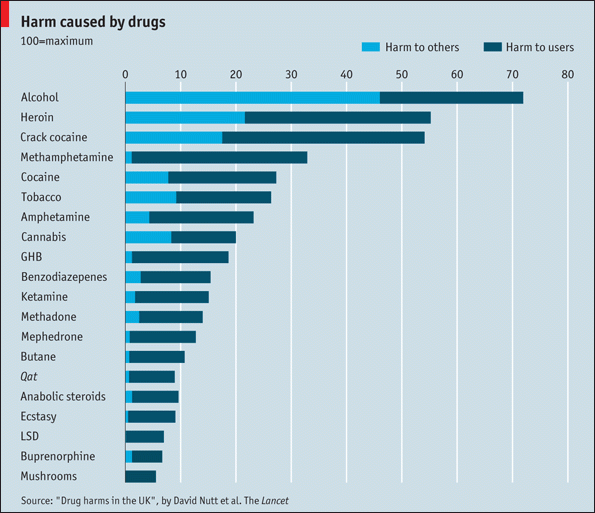Sam Spade: Ten thousand? We were talking about a lot more money than this.
Kasper Gutman: Yes, sir, we were, but this is genuine coin of the realm. With a dollar of this, you can buy ten dollars of talk.
Dashiell Hammett, The Maltese Falcon.
TODAY FROM AMERICA:
A. ANTIBIOTIC RESISTANCE POLICY:
The Sacramento Bee reported today that the Federal Administration just released its policies for combating Antibiotic Resistance. For many months my daughter, Dr. Jessica Petrillo, was actively involved on behalf of the State Department in developing the international portion of the national strategy and contributed to the framing of the Executive Order implementing that strategy. For her efforts she received The State Department’s Superior Honor Award.
In addition to her work on the current policies designed to protect us all from the threat of antibiotic resistant pathogens, for the past few years she also has contributed significantly to the development of actions and strategies to defend this Nation and the world from intentional biologic attack.
We all too often forget that it is not only those armed with a gun that safeguard our nation. Intelligence, commitment and dedication to the public good instead of simple pursuit of economic advantage are as important, if not more important, to our security.
Congratulations Jessica, I am very proud of you.
B. HOPI CEREMONIAL DANCERS CIRCA 1900:
C. POOKIE’S ADVENTURES IN ELDORADO HILLS:
There was a strange phenomenon in the skies over The Golden Hills this morning. A huge forest fire of about 100,000 acres is burning a few miles further up towards the mountains. The smoke turned the Eastern skies a yellowish-grey. Through this pall the rising sun appears a deep iridescent red. I could look directly at it for ten or twenty seconds. It all looked like a view from another world out of a science fiction movie.
********************************
I have just learned that Peter and Barry Grenell became Grandparents a few months ago. The baby’s name is Anuhea which means fragrant breeze in Hawaiian. Congratulations to everyone involved.
********************************
The forest fire nearby is under control. We can now breathe air again free of smoke and ash.
I have packed a tiny suitcase for my trip to Thailand and Sicily. It is still too large for carry on for the airline (Ryan Air) I have chosen to fly from Rome to Palermo. Checking in the small bag will double my flight costs.
PETRILLO’S COMMENTARY:
QUIGLEY ON TOP
Security, Power and Political Instability
Introduction
In his unpublished magnum opus Weapons Systems and Political Stability Carroll Quigley attempts to provide a cohesive analytical structure to the morass of confusion regarding concepts of security and power. He goes on at length to demonstrate how the ideas he enunciates repeat in History and how the application of those concepts can explain most historical conflicts. I will not try to summarize his historical examples here but only attempt to lay out the operative concepts he identifies. The first thing I must point out is that he is not particularly discussing security from such things and famine or disease and the like, although he makes it clear that the lack of such security is more often than not a product of the exercise of power or the lack thereof. He is, however, examining the meaning of security in a clash of power among groups the effect of which could and often does produce tragic consequences to individuals often including death.
He begins by pointing out that security and power are different notions and that security has not always been a product of a state.
“Men have experienced security and insecurity throughout all human history. In all that long period, security has been associated with power relationships and is today associated with the state only because this is the dominant form which power relationships happen to take in recent times. But even today, power relationships exist quite outside of the sphere of the state, and, as we go farther into the past, such non-state (and ultimately, non-public) power relationships become more dominant in human life.”
Definition of Security
Security Quigley defines as:
“…the settlement of disputes involving clashes of wills within the group and the defense of the group against outside threats—are the essential parts of the provision of security through group life. They form the opposite sides of all political life and provide the most fundamental areas in which power operates in any group or community. Both are concerned with clashes of wills, the one with such clashes between individuals or lesser groups within the community and the other with clashes between the wills of different communities regarded as entities. Thus clashes of wills are the chief problems of political life, and the methods by which these clashes are resolved depend on power, which is the very substance of political action.”
The nature of power
He then goes on to ask and discuss, what is the nature of power and what is the relationship between power and security.
“Power,” he maintains, “is simply the ability to obtain the acquiescence of another person’s will.”
That is to obtain full cooperation, obedience to specific orders, or simple acquiescence.
The Basis of Power
These power relationships can be obtained by the exercise of one or more of what can be described as the triple basis of power in our culture: force, wealth or persuasion.
He states:
“The first of these is the most fundamental (and becoming more so) in our society, and will be discussed at length later. The second is quite obvious, since it involves no more than the purchase or bribery of another’s acquiescence, but the third is usually misunderstood in our day.
The economic factor enters into the power nexus when a person’s will yields to some kind of economic consideration, even if this is merely one of reciprocity. When primitive tribes tacitly hunt in restricted areas which do not overlap, there is a power relationship on the lowest level of economic reciprocity.
“The ideological factor in power relationships, which I have called persuasion, operates through a process which is frequently misunderstood. It does not consist of an effort to get someone else to adopt our point of view or to believe something they had not previously believed, but rather consists of showing them that their existing beliefs require that they should do what we want.”
Finally he explains regarding the above three bases of power:
“Of course, in any power situation the most obvious element to people of our culture is force. This refers to the simple fact of physical compulsion, but it is made more complicated by the two facts that man has, throughout history, modified and increased his physical ability to compel, both by the use of tools (weapons) and by organization of numerous men to increase their physical impact. It is also confused, for many people, by the fact that such physical compulsion is usually aimed at a subjective target: the will of another person. This last point, like the role of morale already mentioned, shows again the basic unity of power and of power relationships, in spite of the fact that writers like myself may, for convenience of exposition, divide it into elements, like this division into force, wealth, and persuasion.”
Psychological nature of power relations
In addition, he argues there exists a psychological nature in power relations. He proposes two analytical rules:
“1. Conflict arises when there is no longer a consensus regarding the real power situation, and the two parties, by acting on different subjective pictures of the objective situation, come into collision.
2. The purpose of such a conflict, arising from different pictures of the facts, is to demonstrate to both parties what the real power relationship is in order to reestablish a consensus on it.”
Influence of time in power relationships
A third influence on a power relationship is the changes that time may make to the above psychological rules and thereby the nature of a particular conflict.
Also, distance or space affect power relationships. If you cannot reach someone or some nation to apply the elements of power than a power relationship does not exist and usually cannot exist. In the modern world of course, although this criteria has diminished in significance, it most certainly has not been extinguished.
Relationships in the exercise of power
And finally “most power relationships are multilateral and not dual.” “Such multilateral systems,” he argues, “explain the continued existence of smaller states whose existence could never be explained in any dual system in which they would seem to be included entirely in the power area of an adjacent great power.”
Summary
In the political arena with its enormous complexities, attempts to use power no matter how applied often cause political instability. Nevertheless Quigley writes:
“In all such crises of political instability, we can see the operations of the factors I have enumerated. These are:
(1) the dichotomy between the objective facts and subjective ideas of power situations;
(2) the nature of objective power as a synthesis of force, wealth, and ideology in our cultural tradition; and,
(3) the complication of these operations as a consequence of changes resulting from time, from distance, and from a multiplicity of power centers.”
Examples of the relationship between power and security although described in the historical record laid out in the book will have to remain for another time.
TODAY’S QUOTE:
“This same characteristic feature of our society, that we cannot use what we already have for the satisfaction of our needs unless we devote increasing increments of time and resources to different future desires, now pervades all aspects of our society. Everywhere our activities now have built-in feedback loops which require investment in future technical innovations creating new activities or there will be sudden collapse of our existing activities.”
Carroll Quigley. review of Ferkiss “In Search for a Solution to the World Crisis, 1974”
TODAY’S CHART:

I have no idea what the scale on top refers to. Anyway, it applies to drug use in the UK so who cares. What ever abuse they indulge in, I am sure we can do better in the USA.
Note: those interested in back issues of This and that…. they can be found at: josephpetrillo.wordpress.com

